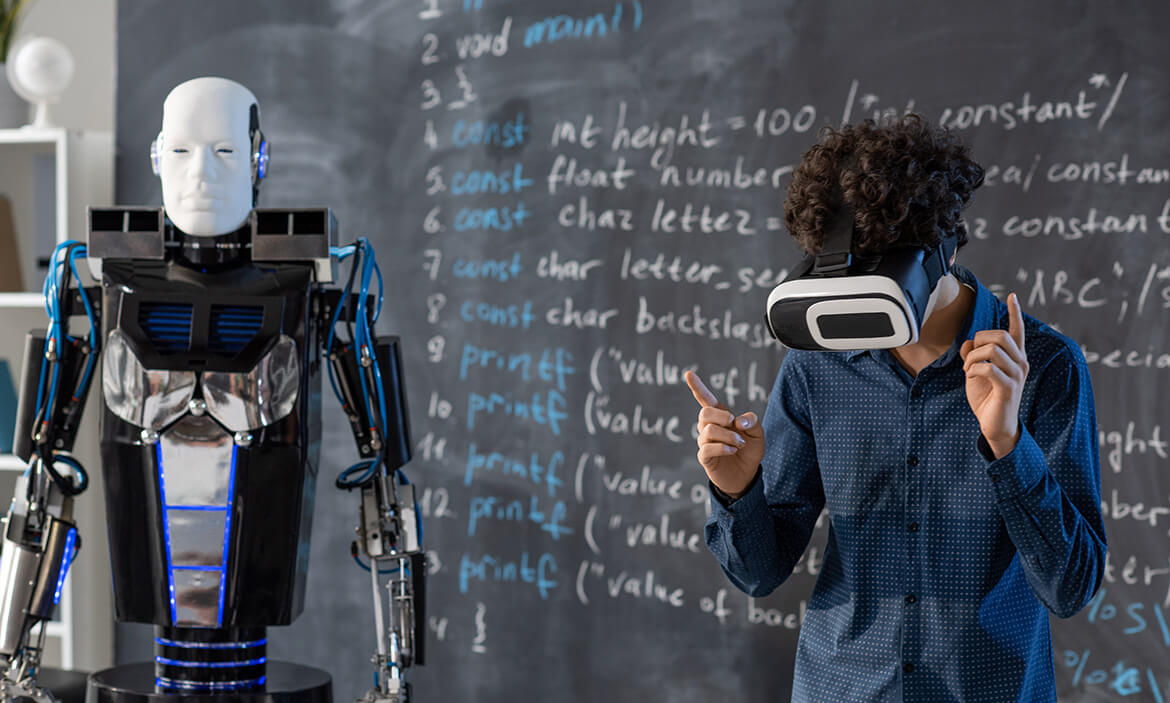Linguistic Validation Services for Life Sciences
– Delivering Accuracy & Compliance
We provide expert linguistic validation services for clinical trials, PROs, COAs, and regulatory submissions, ensuring precise, culturally adapted, and compliant translations.
- ISO 17100 & ISO 9001:2015 Certified
- Regulatory-Compliant Translations
- 150+ Supported Languages
Bridging Language and Regulatory Compliance
Linguistic validation is a critical process in the life sciences industry, ensuring that translated patient-facing materials are accurate, culturally appropriate, and compliant with global regulatory standards. It plays a key role in clinical trials, patient-reported outcomes (PROs), and clinical outcome assessments (COAs) by maintaining data integrity, patient comprehension, and regulatory approval.
At Sesen, we provide comprehensive linguistic validation services, combining the expertise of specialized life sciences linguists, cognitive debriefing, back translation, and expert review to ensure clarity, reliability, and compliance. Our methodology adheres to FDA, EMA, MHRA, PMDA, and ISO 17100 & 9001:2015 standards, supporting pharmaceutical, biotech, and medical device organizations in achieving successful regulatory submissions and multilingual clinical research accuracy.
Who Needs Linguistic Validation?
Linguistic validation is essential for organizations involved in global clinical research, regulatory submissions, and patient engagement, including:
- Pharmaceutical & Biotech Companies – Ensuring accurate, regulatory-compliant translations for clinical trials, PROs, and COAs.
- Contract Research Organizations (CROs) – Supporting clinical trials with validated, patient-centered translations to maintain data integrity.
- Medical Device Manufacturers – Ensuring IFUs, labels, and patient instructions meet international compliance standards.
- Healthcare Organizations – Enhancing multilingual patient communication for improved health outcomes and accessibility.
- Institutional Review Boards (IRBs) & Ethics Committees – Validating informed consent forms (ICFs) and other patient-facing materials for ethical and regulatory compliance.
Sesen’s linguistic validation expertise helps organizations streamline regulatory approval, mitigate compliance risks, and strengthen the credibility of multilingual clinical research.
What Is Linguistic Validation?
Linguistic validation is a structured process that ensures translated clinical and patient-facing materials maintain conceptual accuracy, cultural relevance, and regulatory compliance across multiple languages. It is essential for clinical trials, patient-reported outcomes (PROs), clinical outcome assessments (COAs), and regulatory submissions, helping life sciences organizations generate reliable, patient-comprehensible, and regulator-approved data.
Key Components of Our Linguistic Validation Methodology
At Sesen, we follow a rigorous, industry-standard linguistic validation process, integrating ISO 17100-certified methodologies with expert linguistic and scientific reviews to ensure data integrity and global regulatory adherence.
Translation & Back Translation
- Forward translation by life sciences linguists with subject-matter expertise.
- Independent back translation to identify discrepancies and preserve conceptual fidelity.
Cognitive Debriefing
- Patient testing to evaluate readability, comprehension, and cultural appropriateness.
- Conducted with target population participants to ensure accuracy in real-world application.
Expert Review
- Evaluation by subject-matter experts (SMEs) in pharmaceuticals, clinical research, and medical devices.
- Ensures translations maintain scientific accuracy and intended meaning.
Harmonization & Reconciliation
- Standardization of terminology across multiple language versions.
- Alignment of key terms and concepts to maintain consistency across translations.
Regulatory Compliance Review
- Ensures adherence to FDA, EMA, MHRA, PMDA, and other global regulatory standards.
- Final documentation and certification for submission-ready materials.
Sesen’s linguistic validation methodology enables pharmaceutical, biotech, CROs, and medical device companies to produce accurate, patient-centric, and regulator-approved multilingual communications for global clinical research.
The Importance of Linguistic Validation in Clinical Trials
Linguistic validation is essential in global clinical research to ensure that translated materials maintain accuracy, cultural appropriateness, and regulatory compliance across multiple languages. Inaccurate translations can lead to misinterpretation, compromised data integrity, and regulatory setbacks, ultimately affecting clinical trial outcomes and patient safety.
Key Reasons Why Linguistic Validation Is Critical
Accurate Patient-Reported Outcomes (PROs) & Clinical Outcome Assessments (COAs)
- Ensures that PRO instruments and COAs accurately capture patient experiences, symptoms, and treatment responses across different languages and cultures.
- Maintains conceptual equivalence in patient questionnaires to produce reliable and valid clinical data for regulatory submission.
Compliance with Global Regulatory Standards
- Aligns translated materials with strict regulatory guidelines from major health authorities, including:
- FDA (U.S.) – Patient-centered drug development and PRO instrument validation.
- EMA (Europe) – Clinical trial translation requirements under GCP guidelines.
- MHRA (UK) – Compliance for COAs, patient consent forms, and device labeling.
- PMDA (Japan) – Linguistic validation for clinical development and medical devices.
- CFDA (China) – Regulations for PROs and clinical outcome documentation in multilingual settings.
Improving Clinical Trial Success Rates
- Prevents data discrepancies caused by mistranslation or cultural misalignment.
- Supports multinational trials by ensuring harmonized translations that yield comparable data across different countries.
Minimizing Delays in Regulatory Approval
- Reduces compliance risks and the need for additional rounds of revision.
- Ensures submission-ready documentation, expediting approval timelines.
Enhancing Patient Comprehension & Engagement
- Ensures patients fully understand consent forms, study instructions, and symptom assessments.
- Increases adherence and retention rates in clinical trials by improving communication clarity.
Sesen’s linguistic validation services help life sciences organizations achieve regulatory compliance, maintain high-quality clinical data, and facilitate successful multinational trials with confidence.
Our Linguistic Validation Process
Linguistic validation is a systematic process that ensures translated patient-reported outcomes (PROs), clinical outcome assessments (COAs), and other life sciences documents are accurate, culturally appropriate, and regulatorily compliant. At Sesen, we follow industry best practices and global regulatory standards, incorporating multiple layers of linguistic and scientific validation to ensure conceptual equivalence, readability, and data integrity. Our structured approach includes translation, harmonization, cognitive debriefing, expert review, and final compliance checks, ensuring that materials are submission-ready for regulatory approval.
Dual Forward Translation & Back Translation
Two independent life sciences linguists each produce a forward translation of the source material. These translations are then compared for discrepancies, terminology differences, and cultural nuances. A harmonized version is created before proceeding to back translation, which is performed by a separate linguist to assess conceptual fidelity against the original text.
Reconciliation & Harmonization
A linguistic validation specialist reviews the back translation, harmonized forward translation, and original source to identify any semantic inconsistencies, ambiguous terminology, or loss of meaning. Terminology refinements are applied to ensure cross-language consistency, particularly for multinational clinical trials requiring standardized data collection.
Cognitive Debriefing
Linguistic validation extends beyond translation by validating patient comprehension. Cognitive debriefing involves testing translated materials with a representative sample of native-speaking patients to assess readability, clarity, and cultural appropriateness. Feedback is incorporated to refine translations, ensuring they are easily understood by the intended audience while preserving medical and scientific accuracy.
Expert Review
Clinical and regulatory subject-matter experts (SMEs) conduct a final content review to verify scientific accuracy, consistency, and clinical relevance. This step ensures that the translated materials align with industry terminology, regulatory expectations, and the intended use case within clinical trials or medical applications.
Final Proofreading & Regulatory Compliance Check
After the expert review, the document undergoes a final linguistic and compliance verification to meet global regulatory standards, including FDA (U.S.), EMA (Europe), MHRA (UK), PMDA (Japan), and CFDA (China) requirements. Any residual errors, formatting issues, or linguistic inconsistencies are addressed to ensure that the materials are submission-ready for regulatory approval.
Certification & Documentation
Upon completion of the validation process, Sesen provides formal certification and supporting documentation confirming that the linguistic validation followed industry best practices, regulatory standards, and ISO 17100-certified methodologies. This certification is often required for regulatory submissions, clinical trials, and patient-reported measures to demonstrate compliance with global health authorities.
Types of Documents We Validate
Sesen provides linguistic validation for a wide range of life sciences documents, delivering accuracy, cultural relevance, and regulatory compliance across multiple languages. Our specialized validation process supports clinical trials, regulatory submissions, and patient communications, helping pharmaceutical companies, CROs, and medical device manufacturers maintain data integrity and regulatory approval.
Clinical Outcome Assessments (COAs)
COAs are essential for evaluating patient health status and treatment efficacy in clinical trials. Our linguistic validation process ensures that COAs maintain conceptual equivalence and consistency across different languages, preserving the integrity of collected data for regulatory submissions.
Patient-Reported Outcomes (PROs)
PROs capture self-reported patient health experiences and are critical for measuring treatment impact. Sesen ensures that translated PROs accurately reflect patient responses across languages while maintaining compliance with regulatory guidelines, preventing data discrepancies in multinational studies.
Quality of Life (QoL) Questionnaires
QoL questionnaires assess the physical, mental, and social well-being of patients in clinical research. Our validation process ensures that QoL questionnaires are linguistically and culturally adapted, allowing for accurate cross-language comparisons in clinical trials and health outcome studies.
Informed Consent Forms (ICFs)
ICFs must be clearly understood by patients to ensure ethical participation in clinical trials. Sesen validates ICF translations to guarantee that patients fully comprehend their rights, risks, and study procedures, meeting IRB, FDA, and EMA requirements for regulatory compliance.
Medical Device Labeling & Instructions for Use (IFUs)
Medical device labeling and IFUs require precise translations to prevent misinterpretation and ensure safe usage. Our linguistic validation process ensures that device labels, packaging, and instructions meet international regulatory standards, reducing risks for healthcare providers and patients.
Pharmacovigilance Reports
Pharmacovigilance reports document adverse events (AEs) and drug safety information for regulatory authorities. We validate these reports to ensure accuracy, consistency, and compliance with global pharmacovigilance standards, enabling seamless reporting to health agencies such as the FDA, EMA, and MHRA.
Patient-Facing Communication Materials
Patient-facing materials, including educational brochures, patient guides, and medication instructions, must be accessible and clearly understood across diverse populations. Sesen ensures these materials are linguistically and culturally adapted to improve patient comprehension, adherence, and engagement in healthcare settings.
Regulatory Submission Documents
Regulatory submission documents, such as clinical trial protocols, study reports, and regulatory dossiers, must be accurately translated for global regulatory approval. Our validation process ensures that all materials meet submission requirements, minimizing delays and ensuring compliance with FDA, EMA, PMDA, and other health authorities.
Sesen’s linguistic validation services ensure that critical clinical, regulatory, and patient-facing materials are accurate, compliant, and ready for global use, supporting successful clinical trials and market approvals.
Why Choose Sesen for Linguistic Validation?
Sesen provides industry-leading linguistic validation services tailored to the unique needs of life sciences organizations.
Life Sciences Expertise
Sesen’s linguistic validation services are led by specialized linguists with deep expertise in medical, pharmaceutical, and clinical research domains. Our linguists have backgrounds in clinical trials, regulatory affairs, and scientific communications, ensuring that translations are not only linguistically accurate but also scientifically precise. This expertise is essential for maintaining data integrity, patient comprehension, and regulatory compliance in multilingual clinical research.
Technology-Enabled Human Translation
We combine human expertise with advanced technology to deliver highly accurate and efficient linguistic validation services. Our process leverages AI-assisted quality checks, translation memory tools, and terminology management systems to enhance consistency and accuracy while ensuring that translations maintain the intended clinical meaning. This technology-enabled approach streamlines the validation process without compromising the human expertise required for regulatory compliance.
Regulatory Knowledge
Sesen has a comprehensive understanding of global regulatory requirements, ensuring that all linguistic validation efforts align with FDA (U.S.), EMA (Europe), MHRA (UK), PMDA (Japan), CFDA (China), and other health authority standards. We ensure that patient-facing materials, PROs, COAs, and regulatory submission documents meet strict compliance guidelines, helping pharmaceutical and biotech companies navigate the regulatory approval process with confidence.
Global Reach
With multilingual capabilities spanning over 100 languages, Sesen supports global clinical trials and regulatory submissions across diverse markets. Our network of in-country linguists and subject-matter experts ensures that translations are culturally and linguistically adapted to meet the specific linguistic and regulatory needs of each target region, reducing risks associated with misinterpretation in cross-border studies.
End-to-End Support
From initial translation to final regulatory submission, Sesen provides a fully integrated linguistic validation process. Our team manages back translation, cognitive debriefing, harmonization, expert review, and regulatory documentation, ensuring that all translated materials meet industry standards and regulatory expectations. This comprehensive support helps pharmaceutical, biotech, and medical device companies accelerate clinical trial timelines while ensuring compliance and accuracy.
Sesen’s linguistic validation expertise, regulatory knowledge, and global reach make us a trusted partner for life sciences organizations seeking accurate, compliant, and culturally adapted translations for clinical research and regulatory documentation.
Frequently Asked Questions (FAQ)
How long does linguistic validation take?
The timeline depends on the number of languages and complexity of the material, typically ranging from 4 to 6 weeks. Complex projects requiring cognitive debriefing, multiple rounds of review, or regulatory certification may take longer.
Is linguistic validation required for regulatory submissions?
Yes, for COAs, PROs, and other patient-reported measures, most regulatory agencies such as FDA, EMA, MHRA, and PMDA require linguistic validation to ensure data integrity and cross-cultural equivalence.
Do you provide linguistic validation for rare languages?
Yes, we support over 100 languages, including rare and less commonly spoken dialects, through a network of in-country linguists and subject-matter experts with life sciences experience.
What is the difference between linguistic validation and translation?
While translation ensures linguistic accuracy, linguistic validation goes beyond basic translation by incorporating back translation, cognitive debriefing, expert review, and regulatory compliance checks to ensure conceptual equivalence and readability for target populations.
What types of clinical documents require linguistic validation?
Linguistic validation is essential for clinical outcome assessments (COAs), patient-reported outcomes (PROs), quality of life (QoL) questionnaires, informed consent forms (ICFs), and regulatory submission documents, among others.
What is cognitive debriefing, and why is it important?
Cognitive debriefing is a patient testing process where native speakers from the target population review translated materials to ensure clarity, comprehension, and cultural appropriateness. This step helps confirm that translations are accurately understood as intended in the clinical context.
How do you ensure consistency across multiple languages?
We use harmonization and reconciliation techniques to standardize key terminology, along with translation memory tools, glossary management, and expert review, ensuring that all language versions remain consistent and conceptually equivalent.
Do you provide certification for linguistic validation?
Yes, we provide certification and documentation confirming that the linguistic validation process followed industry best practices and met regulatory standards for submission.
How do regulatory agencies evaluate linguistic validation?
Agencies like FDA and EMA assess whether translated PROs, COAs, and other patient-facing materials maintain conceptual integrity and cross-cultural validity. Lack of proper linguistic validation can result in delays or rejections during the approval process.
Can linguistic validation be expedited for urgent projects?
Yes, expedited services are available for time-sensitive clinical trials and regulatory submissions. However, turnaround times depend on factors such as language count, document complexity, and required validation steps.
Get Started with Our Linguistic Validation Services
Contact us today to ensure compliance and accuracy in your mulitlingual clinical trials.






